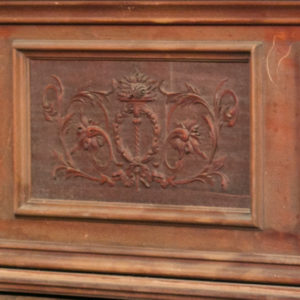

- Hobart m cable upright piano serial number lookup 390393 full#
- Hobart m cable upright piano serial number lookup 390393 plus#
One of Hobart Jr.'s earliest steps was to move the company headquarters from Chicago to La Porte. Morenus became vice-president and Albert F. took over as president his father had died some time earlier ("of overwork," as Presto put it ).

Swan & Sons, longtime employees of Cable's who had earlier worked in the mechanical department of the Chicago Cottage Organ Co. In 1907, Cable sold the Burdett Organ Co. In 1905, the company was shipping 16 pianos and 30 organs a day. He would eventually prevail in 1906, when the bar closed and its building was torn down. (Later that year, Cable began his fight to prevent a saloon, backed by the Pabst brewery, from starting up near his LaPorte factory. The Chicago offices and warerooms remained at Steinway Hall at 17-21 Van Buren Street. In 1904, the company's officers included Cable as president Cable Jr., vice-president and Morenus, secretary and treasurer. Cable stated to-day that the contractor has carefully followed all the specifications and that the plant is unquestionably the finest of its kind in the country," the Music Trade Review wrote. In its first year, the factory was producing 15 pianos a day and was said to have the capacity for 6,000 a year. Its two-boiler plant included a 250-horsepower engine.
Hobart m cable upright piano serial number lookup 390393 plus#
Built of white brick from Michigan City, Indiana, its 200-by-62-foot main building had four stories plus a basement. ) Sited on a corner of a 70-acre plot, the factory at 1223 Factory Street and Darrow Street was completed in April 1904 at a cost of $100,000 ($2,880,370 today ). (In an editorial, Music Trade Review ascribed the choice of exurban location to labor unrest in Chicago. In November 1903, Cable broke ground on a new piano factory in LaPorte, Indiana ("59 miles from Chicago on the Lake Shore railroad-is a delightful little city of about 12,000 inhabitants" ). Months later, Cable would buy out the Brockmeiers, who would create an eponymous (and short-lived) piano company that operated from 1908 to 1910 in Grand Rapids, Michigan. Cable Jr., second vice-president Morenus, secretary and Fred L. Brockmeier, vice-president his son Hobart M. Īs 1903 began, the company's officers included Cable as president J.H. Brockmeier, who visited London in 1902 to seek export opportunities. may be increased from $100,000 to $200,000." The company's organ business was managed by J.H. It is not improbable that the capital stock of the Hobart M. to extend the capacity of the plant so as to enable them to double that output in less than a year. The Music Trade Review wrote, ".it is intended by the Hobart M. That same year, Cable purchased the Burdett reed organ company, including its factory in Freeport, Illinois, which was making about 5,000 organs a year. Cable is a dignified gentleman, who has won the respect of the trade," Music Trade Review wrote. This term is applied in no spirit of levity, for Hobart M. Cable, in music trade circles, is frequently termed 'Carload' Cable.
Hobart m cable upright piano serial number lookup 390393 full#
Bolstered by his reputation earned at Chicago Cottage, sales were brisk by year's end, the company was sending boxcars full of pianos as far as California. In 1901, the company began making pianos at a factory at 500-510 Clybourn Avenue in Chicago. Morenus would rise to vice-president and sales director during his three decades with the company. Morenus, who had married Martha Strong Cable in 1893 and in 1900 was running The Cable Company's store in Atlanta. An early hire was Hobart's son-in-law Howard B. Armstrong, filed papers of incorporation with the Illinois Secretary of State for Hobart M. On December 8, 1900, Hobart Cable, along with his son Hobart M. In 1899, Herman died the next year, Hobart left to start his own eponymous piano-manufacturing firm. Cable, they built the company into one of the country's leading manufacturers of reed organs, pianos, and player pianos. Later in the decade, Hobart's brother Herman Cable invited him to Chicago, where he became vice-president of the Chicago Cottage Organ Company.

Cable then moved to Boston, and served in the Massachusetts House of Representatives in 1880. Cable, son of Silas and Mary Goodrich Cable, was a school teacher for several years before becoming school commissioner of Delaware County, New York.


 0 kommentar(er)
0 kommentar(er)
